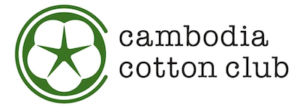There are approximately 250 "cancer villages" in China. Weili Village in Zhejiang Province, a major center of children's clothing manufacturing, is also a "cancer village. The term "cancer village" refers to an area where drinking water is contaminated with highly carcinogenic and toxic chemicals and heavy metals due to illegal drainage, and where the incidence of severe diseases, such as cancer and unexplained incurable diseases, and death rates are high. The existence of "cancer villages" was finally recognized by the central government last June.
In the case of the village of Buli in Zhejiang Province, Chinese environmental groups claim that toxic substances discarded by some textile and dyeing factories are causing "cancer." However, all the factories discharge into the same river. This means that it is impossible to distinguish between factories that are polluting the river and those that are not. Environmental groups have no authority to investigate, so they say that compelling data can only be obtained if enforcement is carried out by police or health authorities.
The local government in Zhejiang Province has also been criticized for not trying to get a better grasp of the actual situation. "As a local government official, the priority is to develop the local economy, Personnel changes in senior management will take place in a very short period of time. Rather than sitting on their hands and making cumbersome public policies, they want to focus on economic growth, which will bring higher tax revenues in a short period of time, This is the reason", environmental groups point out.
Many of the residents who have complained of health problems are farmers and fishermen. "If the fact that this village is suffering from many diseases and deaths due to soil and groundwater contamination spreads, we will not be able to sell our agricultural products, fish, and livestock, and we will not be able to survive, So, we don't want people to know that we are a "cancer village”." This is a complicated situation.
Shipped vegetables, fish, and meat are exported to various parts of China and the world, both as fresh food and as processed food. The "Cancer Village" in Zhejiang Province reveals the composition that when the safety of clothing is neglected, even food safety is compromised.
According to the Chinese Ministry of Health, China is a "high-incidence country for birth defects," with approximately 900,000 new babies born each year with disabilities. The incidence rate is approximately 5.6%, or 1 in 20. Birth defects are the second leading cause of infant mortality. The causes have been attributed to the increasing severity of environmental pollution and the lack of food safety guarantees.
(END)
